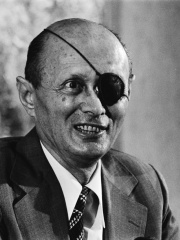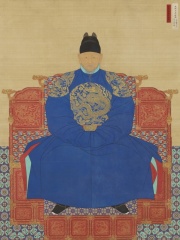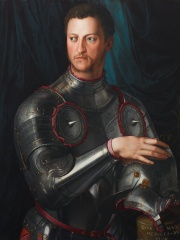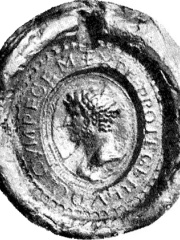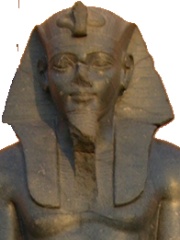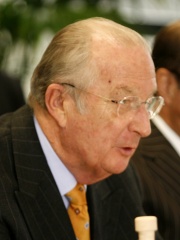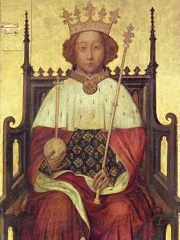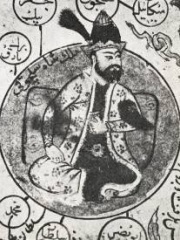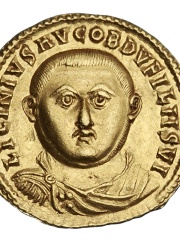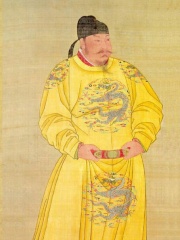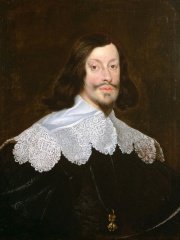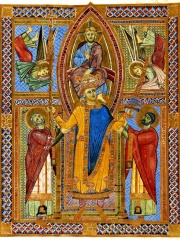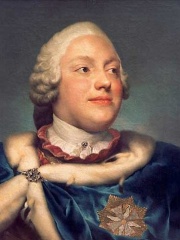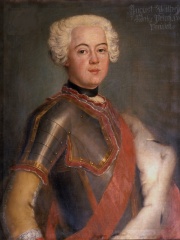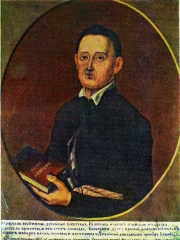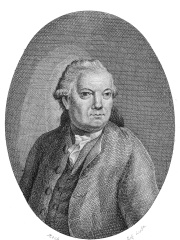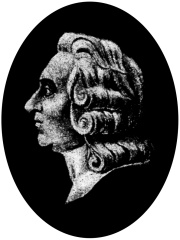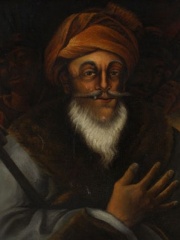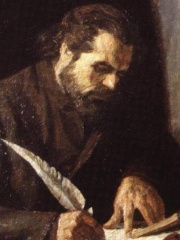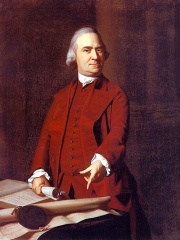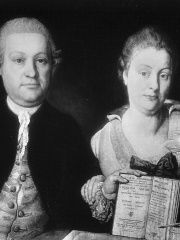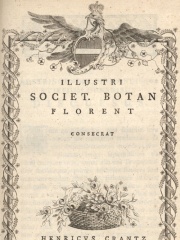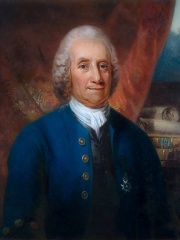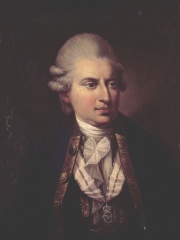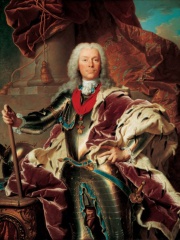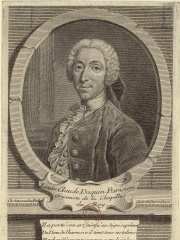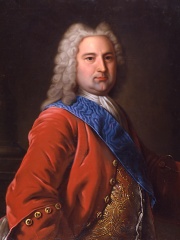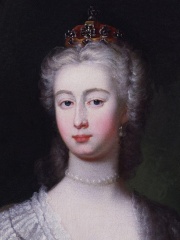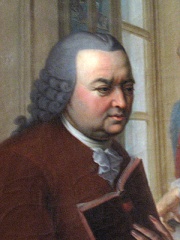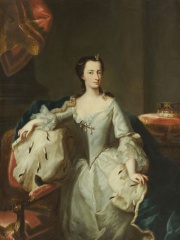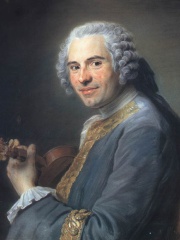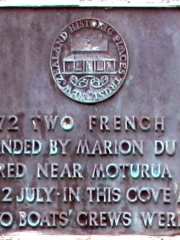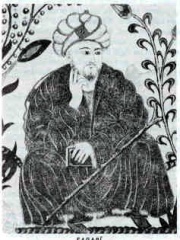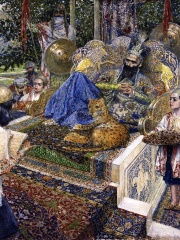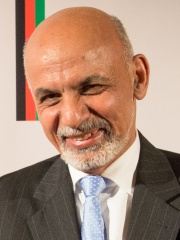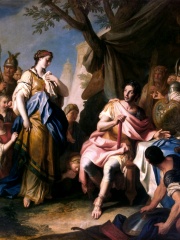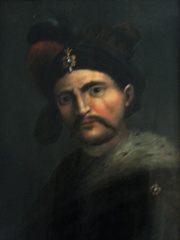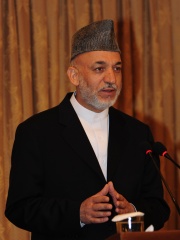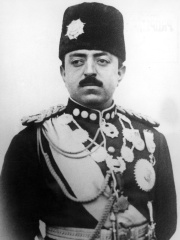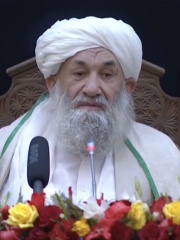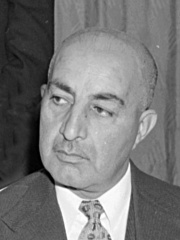POLITICIAN
Ahmad Shah Durrani
1722 - 1772

 Ahmad Shah Durrani
Ahmad Shah Durrani
Ahmad Shah Durrani, (c. 1720–1722 – 16–23 October 1772) born as Ahmad Khan Abdali, was the first ruler and founder of the Durrani Empire. He is often regarded as the founder of modern Afghanistan. As Shah, he relentlessly led military campaigns for over 25 years across West Asia, Central Asia, and South Asia, creating one of the largest Islamic empires in the world, encompassing Afghanistan, much of Pakistan, Iranian Khorasan, and parts of Northern India. Born between 1720 and 1722, Ahmad Shah accompanied Nader Shah in his campaigns until Nader's assassination in 1747, resulting in the division of the Afsharid Empire. Read more on Wikipedia
His biography is available in 62 different languages on Wikipedia (up from 59 in 2024). Ahmad Shah Durrani is the 630th most popular politician (up from 2,919th in 2024), the 6th most popular biography from Afghanistan (up from 25th in 2019) and the 3rd most popular Afghan Politician.
Ahmad Shah Durrani is most famous for founding the Durrani Empire in 1747.
Memorability Metrics
Page views of Ahmad Shah Durrani by language
Among POLITICIANS
Among politicians, Ahmad Shah Durrani ranks 630 out of 19,576. Before him are Moshe Dayan, Taejo of Joseon, Cosimo I de' Medici, Grand Duke of Tuscany, Louis the German, Merneptah, and Albert II of Belgium. After him are Richard II of England, Malik-Shah I, Licinius, Emperor Taizong of Tang, Ferdinand III, Holy Roman Emperor, and Henry II, Holy Roman Emperor.
Most Popular Politicians in Wikipedia
Go to all RankingsMoshe Dayan
1915 - 1981
HPI: 78.14
Rank: 624
Taejo of Joseon
1335 - 1408
HPI: 78.12
Rank: 625
Cosimo I de' Medici, Grand Duke of Tuscany
1519 - 1574
HPI: 78.12
Rank: 626
Louis the German
806 - 876
HPI: 78.11
Rank: 627
Merneptah
1300 BC - 1203 BC
HPI: 78.10
Rank: 628
Albert II of Belgium
1934 - Present
HPI: 78.10
Rank: 629
Ahmad Shah Durrani
1722 - 1772
HPI: 78.09
Rank: 630
Richard II of England
1367 - 1400
HPI: 78.08
Rank: 631
Malik-Shah I
1055 - 1092
HPI: 78.06
Rank: 632
Licinius
263 - 325
HPI: 78.06
Rank: 633
Emperor Taizong of Tang
598 - 649
HPI: 78.06
Rank: 634
Ferdinand III, Holy Roman Emperor
1608 - 1657
HPI: 78.06
Rank: 635
Henry II, Holy Roman Emperor
973 - 1024
HPI: 78.04
Rank: 636
Contemporaries
Among people born in 1722, Ahmad Shah Durrani ranks 1. After him are Frederick Christian, Elector of Saxony, Prince Augustus William of Prussia, Gregory Skovoroda, Georg Benda, Axel Fredrik Cronstedt, Jazzar Pasha, Paisius of Hilendar, Samuel Adams, Duchess Luise of Brunswick-Wolfenbüttel, Leopold Auenbrugger, and Heinrich Johann Nepomuk von Crantz. Among people deceased in 1772, Ahmad Shah Durrani ranks 1. After him are Emanuel Swedenborg, Johann Friedrich Struensee, Joseph Wenzel I, Prince of Liechtenstein, Louis-Claude Daquin, Ernst Johann von Biron, Princess Augusta of Saxe-Gotha, Gottfried Achenwall, Gerard van Swieten, Princess Mary of Great Britain, Jean-Joseph de Mondonville, and Marc-Joseph Marion du Fresne.
Others Born in 1722
Go to all RankingsAhmad Shah Durrani
POLITICIAN
1722 - 1772
HPI: 78.09
Rank: 1
Frederick Christian, Elector of Saxony
POLITICIAN
1722 - 1763
HPI: 69.47
Rank: 2
Prince Augustus William of Prussia
POLITICIAN
1722 - 1758
HPI: 68.31
Rank: 3
Gregory Skovoroda
WRITER
1722 - 1794
HPI: 68.01
Rank: 4
Georg Benda
COMPOSER
1722 - 1795
HPI: 66.66
Rank: 5
Axel Fredrik Cronstedt
CHEMIST
1722 - 1765
HPI: 66.25
Rank: 6
Jazzar Pasha
POLITICIAN
1722 - 1804
HPI: 66.14
Rank: 7
Paisius of Hilendar
HISTORIAN
1722 - 1773
HPI: 64.53
Rank: 8
Samuel Adams
POLITICIAN
1722 - 1803
HPI: 64.08
Rank: 9
Duchess Luise of Brunswick-Wolfenbüttel
POLITICIAN
1722 - 1780
HPI: 63.54
Rank: 10
Leopold Auenbrugger
PHYSICIAN
1722 - 1809
HPI: 63.45
Rank: 11
Heinrich Johann Nepomuk von Crantz
BIOLOGIST
1722 - 1799
HPI: 63.20
Rank: 12
Others Deceased in 1772
Go to all RankingsAhmad Shah Durrani
POLITICIAN
1722 - 1772
HPI: 78.09
Rank: 1
Emanuel Swedenborg
PHILOSOPHER
1688 - 1772
HPI: 76.06
Rank: 2
Johann Friedrich Struensee
POLITICIAN
1737 - 1772
HPI: 71.77
Rank: 3
Joseph Wenzel I, Prince of Liechtenstein
POLITICIAN
1696 - 1772
HPI: 70.96
Rank: 4
Louis-Claude Daquin
COMPOSER
1694 - 1772
HPI: 67.38
Rank: 5
Ernst Johann von Biron
POLITICIAN
1690 - 1772
HPI: 66.13
Rank: 6
Princess Augusta of Saxe-Gotha
NOBLEMAN
1719 - 1772
HPI: 66.04
Rank: 7
Gottfried Achenwall
HISTORIAN
1719 - 1772
HPI: 62.99
Rank: 8
Gerard van Swieten
PHYSICIAN
1700 - 1772
HPI: 62.66
Rank: 9
Princess Mary of Great Britain
POLITICIAN
1723 - 1772
HPI: 62.44
Rank: 10
Jean-Joseph de Mondonville
COMPOSER
1711 - 1772
HPI: 62.42
Rank: 11
Marc-Joseph Marion du Fresne
EXPLORER
1724 - 1772
HPI: 62.01
Rank: 12
In Afghanistan
Among people born in Afghanistan, Ahmad Shah Durrani ranks 6 out of 177. Before him are Rumi (1207), Al-Farabi (872), Mahmud of Ghazni (971), Ashraf Ghani (1949), and Roxana (-347). After him are Abbas the Great (1571), Mohammed Zahir Shah (1914), Hamid Karzai (1957), Amanullah Khan (1892), Hasan Akhund (1945), and Burhanuddin Rabbani (1940).
Others born in Afghanistan
Go to all RankingsRumi
WRITER
1207 - 1273
HPI: 86.64
Rank: 1
Al-Farabi
PHILOSOPHER
872 - 951
HPI: 84.23
Rank: 2
Mahmud of Ghazni
POLITICIAN
971 - 1030
HPI: 80.67
Rank: 3
Ashraf Ghani
POLITICIAN
1949 - Present
HPI: 78.69
Rank: 4
Roxana
COMPANION
347 BC - 310 BC
HPI: 78.55
Rank: 5
Ahmad Shah Durrani
POLITICIAN
1722 - 1772
HPI: 78.09
Rank: 6
Abbas the Great
POLITICIAN
1571 - 1629
HPI: 77.08
Rank: 7
Mohammed Zahir Shah
POLITICIAN
1914 - 2007
HPI: 76.65
Rank: 8
Hamid Karzai
POLITICIAN
1957 - Present
HPI: 76.45
Rank: 9
Amanullah Khan
POLITICIAN
1892 - 1960
HPI: 75.51
Rank: 10
Hasan Akhund
POLITICIAN
1945 - Present
HPI: 75.51
Rank: 11
Burhanuddin Rabbani
POLITICIAN
1940 - 2011
HPI: 75.48
Rank: 12
Among POLITICIANS In Afghanistan
Among politicians born in Afghanistan, Ahmad Shah Durrani ranks 3. Before him are Mahmud of Ghazni (971), and Ashraf Ghani (1949). After him are Abbas the Great (1571), Mohammed Zahir Shah (1914), Hamid Karzai (1957), Amanullah Khan (1892), Hasan Akhund (1945), Burhanuddin Rabbani (1940), Mohammed Daoud Khan (1909), Mohammad Najibullah (1947), and Ahmad Shah Massoud (1953).
Mahmud of Ghazni
971 - 1030
HPI: 80.67
Rank: 1
Ashraf Ghani
1949 - Present
HPI: 78.69
Rank: 2
Ahmad Shah Durrani
1722 - 1772
HPI: 78.09
Rank: 3
Abbas the Great
1571 - 1629
HPI: 77.08
Rank: 4
Mohammed Zahir Shah
1914 - 2007
HPI: 76.65
Rank: 5
Hamid Karzai
1957 - Present
HPI: 76.45
Rank: 6
Amanullah Khan
1892 - 1960
HPI: 75.51
Rank: 7
Hasan Akhund
1945 - Present
HPI: 75.51
Rank: 8
Burhanuddin Rabbani
1940 - 2011
HPI: 75.48
Rank: 9
Mohammed Daoud Khan
1909 - 1978
HPI: 75.36
Rank: 10
Mohammad Najibullah
1947 - 1996
HPI: 75.28
Rank: 11
Ahmad Shah Massoud
1953 - 2001
HPI: 75.21
Rank: 12
